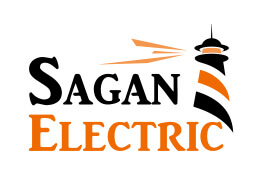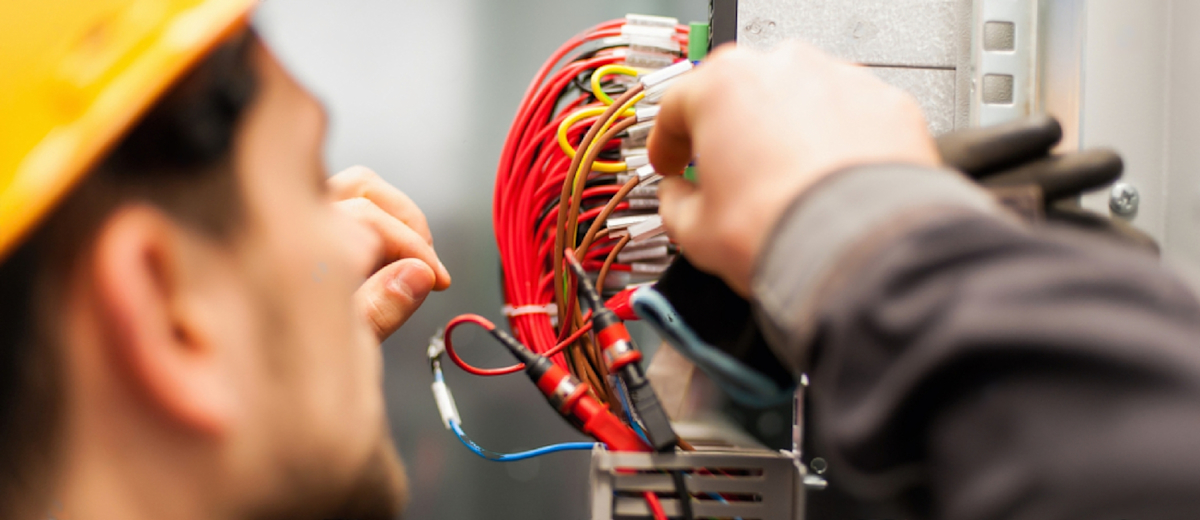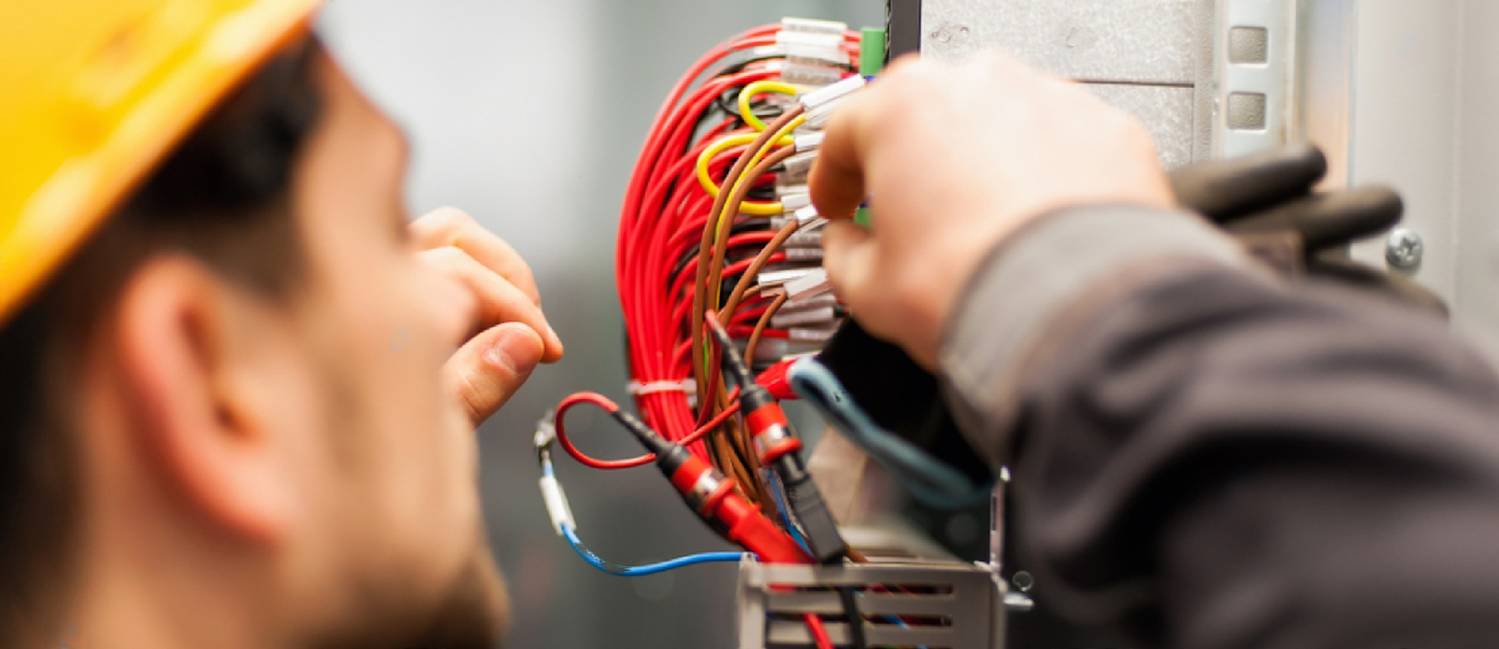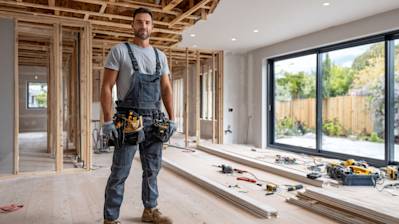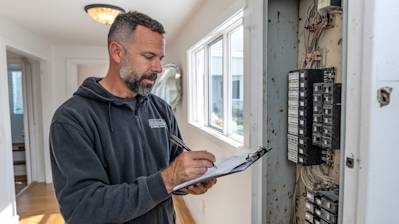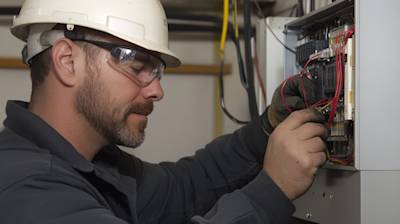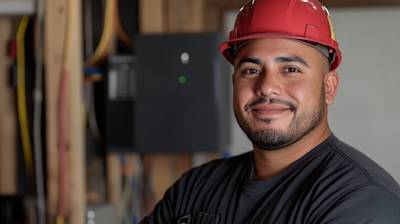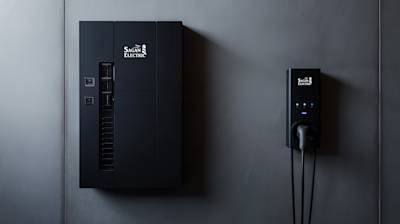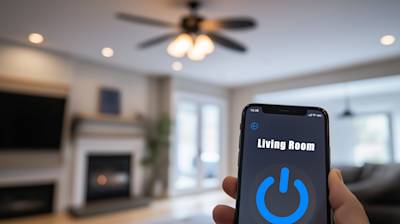As a homeowner in Sacramento, California, it's important to ensure that your electrical system is safe and up to code.
One way to do this is by scheduling a residential electrical inspection with a professional electrical contractor, such as Sagan Electric. In this blog post, we'll discuss what to expect during a residential electrical inspection, who can perform an inspection, how to prepare for an inspection, the purpose of the inspection, common reasons for an inspection, common code violations, and the importance of hiring a professional for your inspection.
What to Expect During a Residential Electrical Inspection
During a residential electrical inspection, an electrical contractor will evaluate your home's electrical system to ensure that it is safe, up to code, and functioning properly. The inspection will typically include a visual assessment of all visible components of the electrical system, including outlets, switches, fixtures, and electrical panels. In addition to a visual inspection, the electrical contractor may also use specialized equipment, such as a voltage tester, circuit analyzer, or infrared camera, for electrical troubleshooting to identify any hidden issues with the electrical system.
The inspector will also check for any potential hazards, such as exposed wires, overloaded circuits, or outdated electrical components. In addition to a visual inspection, the electrical contractor may also use specialized equipment to test the electrical system, such as a voltage tester, circuit analyzer, or infrared camera.
These tests can help identify any hidden issues with the electrical system that may not be visible during a visual inspection. After the inspection is complete, the electrical contractor will provide a detailed report of their findings, including any code violations, safety hazards, or recommended repairs or upgrades.
This report will help you understand the condition of your home's electrical system and what steps need to be taken to ensure its safety and efficiency.
Who Can Do an Electrical Inspection
In California, only licensed electrical contractors are authorized to perform electrical inspections. These contractors have undergone extensive training and education in electrical systems and are familiar with the National Electrical Code (NEC) and other regulations governing electrical installations.
Hiring a licensed electrical contractor like Sagan Electric ensures that your electrical inspection will be conducted by a qualified professional who can identify potential issues and provide recommendations for repairs or upgrades.
Preparing for a Sacramento Residential Electrical Inspection
Before scheduling a residential electrical inspection, there are a few things you can do to prepare your home for the inspection.
First, make sure that all electrical components are accessible and easily visible, including outlets, switches, fixtures, and electrical panels. Clear any clutter or obstacles that may block the inspector's view.
Next, make a list of any known issues or concerns you have with your electrical system, such as flickering lights, tripped breakers, or outdated electrical panels. This information can help the electrical contractor identify potential problems during the inspection.
Finally, ensure that all electrical components are turned on and in use during the inspection. This includes turning on all lights, appliances, and electronics so that the inspector can test the electrical system under normal operating conditions.
The Purpose of Residential Electrical Inspections
The purpose of a residential electrical inspection is to ensure that your home's electrical system is safe and up to code.
Electrical systems can deteriorate over time, leading to potential hazards such as electrical fires, shocks, or electrocution.
An inspection can identify potential issues before they become dangerous, helping to prevent property damage, injury, or even death.
In addition to safety concerns, an electrical inspection can also identify opportunities for energy efficiency and cost savings.
Upgrading outdated or inefficient electrical components can help reduce energy consumption and lower utility bills.
Common Reasons for a Residential Electrical Inspection
There are several reasons why you may need a residential electrical inspection, including:
Buying or selling a home: A residential electrical inspection is often required as part of a home purchase or sale to ensure that the electrical system is safe and up to code.
Renovations or additions: If you are planning to renovate or add on to your home, an electrical inspection can ensure that any new electrical components are installed correctly and up to code.
Aging electrical system: Electrical systems can deteriorate over time, especially in older homes. An electrical inspection can identify potential hazards and help you determine whether repairs or upgrades are necessary.
Safety concerns: If you have experienced electrical issues such as flickering lights, frequent tripped breakers, or shocks, an electrical inspection can help identify the source of the problem and recommend solutions.
Common Electrical Code Violations
During a residential electrical inspection, the electrical contractor will check for compliance with the National Electrical Code (NEC) and other local codes and regulations. Some common electrical code violations include:
Overloaded circuits: Circuits that are overloaded with too many electrical devices or appliances can cause electrical fires or damage to the electrical system.
Improper grounding: Electrical systems must be properly grounded to prevent shocks and electrocution.
Outdated electrical panels: Older electrical panels may not be able to handle the electrical needs of modern homes and can pose a fire hazard.
Exposed wiring: Wiring that is exposed or not properly protected can pose a safety hazard and increase the risk of electrical fires.
Improperly installed fixtures or devices: Electrical fixtures and devices must be installed correctly and up to code to ensure safe and proper operation.
Hiring a Professional for Your Residential Electrical Inspection
While it may be tempting to try to save money by performing your own electrical inspection, it is important to hire a licensed electrical contractor like Sagan Electric for several reasons.
First, licensed electrical contractors have the knowledge and experience to identify potential hazards and code violations that an untrained person may not be able to recognize. They also have the specialized equipment necessary to test the electrical system for hidden issues.
Second, hiring a professional ensures that the inspection is conducted safely and in compliance with local codes and regulations. Electrical systems can be dangerous, and attempting to perform an inspection without the proper knowledge and training can be risky.
Finally, hiring a professional can help you avoid costly mistakes and ensure that any necessary repairs or upgrades are done correctly and up to code. This can help prevent future safety hazards and save you money in the long run.
Contact Sagan Electric Today To Get a FREE Electrical Inspection Quote!
A residential electrical inspection is an important step in ensuring the safety and efficiency of your home's electrical system. By hiring a licensed electrical contractor like Sagan Electric, you can rest assured that your inspection will be conducted safely and accurately, identifying any potential hazards or code violations and recommending necessary repairs or upgrades. Don't wait until it's too late - schedule a residential electrical inspection today to ensure the safety of your home and family.
Tags: Residential Electrical Inspection,
